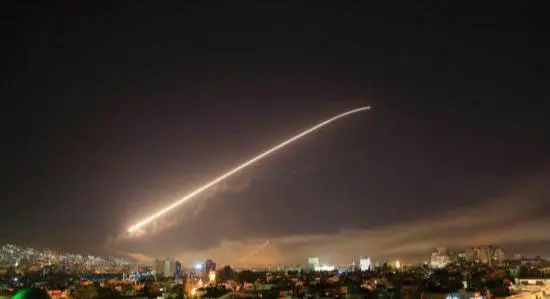With Mauritius joining a list of seven other nations in severing diplomatic relations with Qatar, the escalation against Doha has come on quickly. Eight countries have now cut ties with Qatar, including Bahrain, Saudi Arabia, the United Arab Emirates, Egypt, Yemen, Libya and the Maldives.
But how did all of this start? For years, Egypt has been accusing the small oil-rich country of supporting the Muslim Brotherhood, a group Cairo has included in its list of terrorist organizations.
Rivalry began between the two countries in 2013, following the ousting of Egyptian president and Muslim Brotherhood leader Mohamed Morsi. While Cairo has designated the group a terrorist organization, Qatar has opened its doors, providing the Muslim Brotherhood members and leaders with a haven.
Qatar's support to the Brotherhood then extended beyond Egypt to Libya. It supports the Islamists in the West and Cairo backs the Eastern government. Last month, dozens of Arab and Muslim leaders gathered in Saudi Arabia's Capital Riyadh, to meet with US President Donald Trump and discuss cooperating in their fight against terrorism.
Egyptian President Abdel Fattah EL Sisi urged them to restrain countries supporting terrorist organizations.
Libya is the battlefield where this rivalry is shaped. Egypt and the UAE have the backing of Saudi Arabia in this conflict. Recently, Egypt launched airstrikes against what it said were militant training camps in Libya.
In response, Qatar hosted leaders of the Derna Mujahideen council on Al Jazeera. To counter Qatar's media campaign favoring their regional opponents, the Saudis, Emirates and Egyptians blocked Qatar-funded news websites and television networks.
''Egypt believes that Qatar is playing a major role in the continuation of fighting in the region. It supports terrorist organizations with finances as well as military support in Libya and other places. Marshal Khalifa Haftar's latest statement about Qatar's activities in the country was the proof to that,'' said Khaled Adbel Khaliq, researcher of international politics.
General Khalifa Haftar, the leader of the Libyan National Army, was the first to explicitly accuse Qatar of funding terrorists. On May 29, Haftar stated that Qatar funds militants in Libya and send them there to get training.
It's not the first time Cairo has diplomatic rifts with Doha. This time, however, it has the backing of Gulf powers, which puts enormous pressure on Qatar. Many hope that it will finally let go of its support to the Muslim Brotherhood and other Islamist groups in the region, giving the upper hand to the Saudis and Egyptians, while some experts think the young Emir of Qatar may be too stubborn to yield to such pressure.
(CGTN)
 简体中文
简体中文

